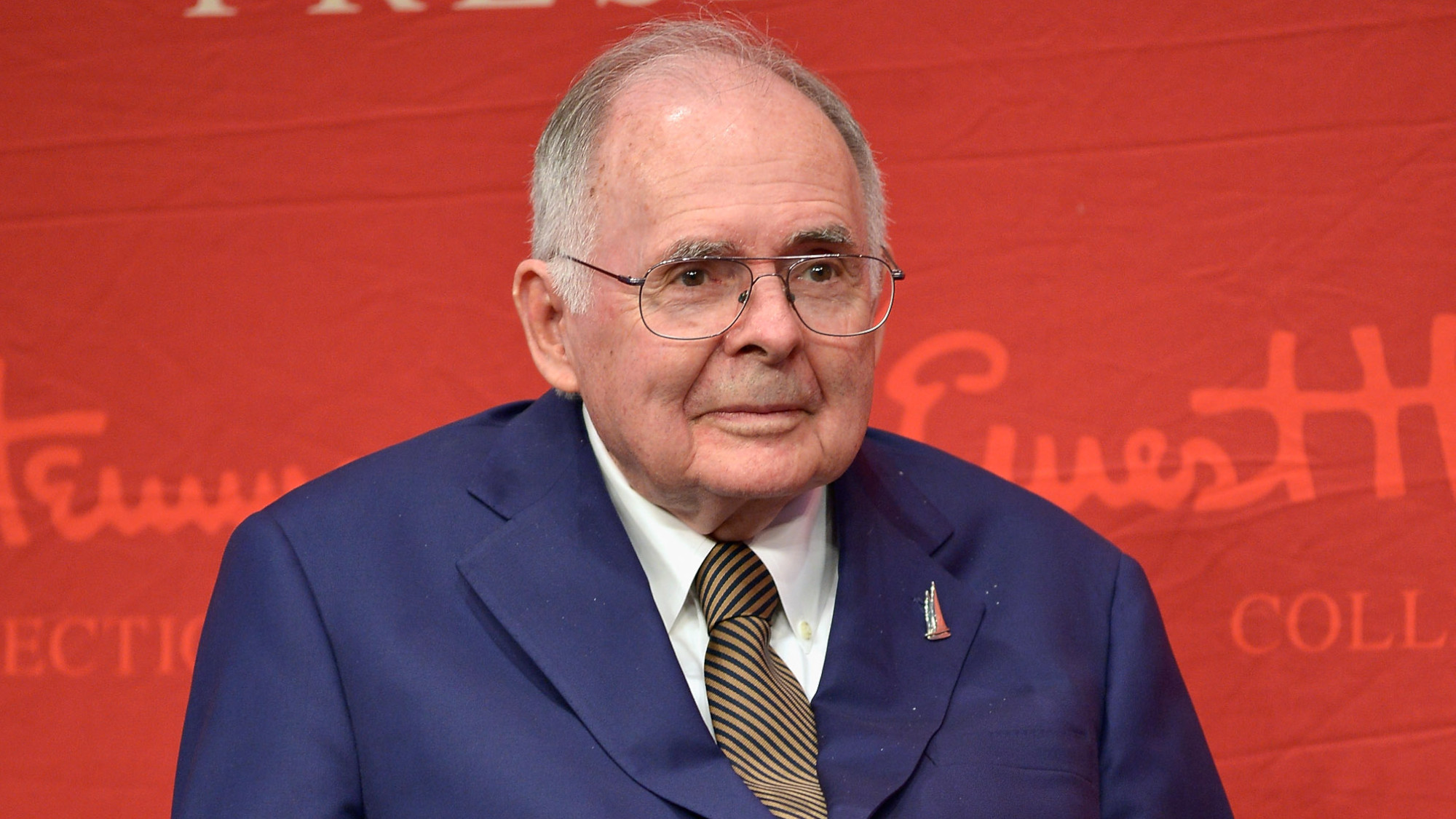Amiri Baraka, 1934–2014
The black poet who preached revolution
A free daily email with the biggest news stories of the day – and the best features from TheWeek.com
You are now subscribed
Your newsletter sign-up was successful
Amiri Baraka’s belated embrace by the establishment he’d railed against for decades didn’t end well. Within months of being named poet laureate of New Jersey in 2002, he read a poem about the 9/11 attacks that included the lines: “Who told 4,000 Israeli workers at the twin towers / To stay home that day.” Amid the ensuing outrage, the governor asked Baraka to resign. After he refused, the state legislature eliminated the post, a move Baraka said confirmed its “ignorance, corruption, racism, and criminal disregard for the U.S. Constitution.” He sued, but he lost.
That was hardly the first controversy in the life of the fiery poet who “embodied the artistic face of the Black Power movement of the 1960s,” said The Wall Street Journal. Born Everett Leroy Jones in Newark, N.J., he studied at Rutgers University and historically black Howard University, where he was “exposed to African-American arts and scholarship” but alienated by what he saw as a drive to conform to white notions of success. He dropped out, changed his name to LeRoi, and after an unhappy stint in the Air Force, gravitated to Greenwich Village and the countercultural circle around poet Allen Ginsberg.
From there he strode “across a variety of American literary and social movements: from the Beats to Black Nationalism to Marxism,” said the Los Angeles Times. The poetry and criticism of LeRoi Jones earned broad acclaim, and his play Dutchman—about a racially charged subway encounter between a black man and a white woman—won an Obie Award in 1964. In 1967, he changed his name again—the Bantu-influenced Arabic roughly translates as “blessed prince”—and created work set on “capturing an outsider’s anger, and giving it form and voice and beauty.”
The Week
Escape your echo chamber. Get the facts behind the news, plus analysis from multiple perspectives.

Sign up for The Week's Free Newsletters
From our morning news briefing to a weekly Good News Newsletter, get the best of The Week delivered directly to your inbox.
From our morning news briefing to a weekly Good News Newsletter, get the best of The Week delivered directly to your inbox.
Baraka’s “political rhetoric wasn’t a tactic for career development,” said The Jewish Daily Forward. Some of his misogynistic, anti-gay, and anti-Semitic statements “were shockingly hateful.” But they expressed “the attitudes, beliefs, and experiences of a segment of society that our country as a whole was forgetting existed.”
A free daily email with the biggest news stories of the day – and the best features from TheWeek.com
-
 The ‘ravenous’ demand for Cornish minerals
The ‘ravenous’ demand for Cornish mineralsUnder the Radar Growing need for critical minerals to power tech has intensified ‘appetite’ for lithium, which could be a ‘huge boon’ for local economy
-
 Why are election experts taking Trump’s midterm threats seriously?
Why are election experts taking Trump’s midterm threats seriously?IN THE SPOTLIGHT As the president muses about polling place deployments and a centralized electoral system aimed at one-party control, lawmakers are taking this administration at its word
-
 ‘Restaurateurs have become millionaires’
‘Restaurateurs have become millionaires’Instant Opinion Opinion, comment and editorials of the day
-
 Catherine O'Hara: The madcap actress who sparkled on ‘SCTV’ and ‘Schitt’s Creek’
Catherine O'Hara: The madcap actress who sparkled on ‘SCTV’ and ‘Schitt’s Creek’Feature O'Hara cracked up audiences for more than 50 years
-
 Bob Weir: The Grateful Dead guitarist who kept the hippie flame
Bob Weir: The Grateful Dead guitarist who kept the hippie flameFeature The fan favorite died at 78
-
 Brigitte Bardot: the bombshell who embodied the new France
Brigitte Bardot: the bombshell who embodied the new FranceFeature The actress retired from cinema at 39, and later become known for animal rights activism and anti-Muslim bigotry
-
 Frank Gehry: the architect who made buildings flow like water
Frank Gehry: the architect who made buildings flow like waterFeature The revered building master died at the age of 96
-
 R&B singer D’Angelo
R&B singer D’AngeloFeature A reclusive visionary who transformed the genre
-
 Kiss guitarist Ace Frehley
Kiss guitarist Ace FrehleyFeature The rocker who shot fireworks from his guitar
-
 Robert Redford: the Hollywood icon who founded the Sundance Film Festival
Robert Redford: the Hollywood icon who founded the Sundance Film FestivalFeature Redford’s most lasting influence may have been as the man who ‘invigorated American independent cinema’ through Sundance
-
 Patrick Hemingway: The Hemingway son who tended to his father’s legacy
Patrick Hemingway: The Hemingway son who tended to his father’s legacyFeature He was comfortable in the shadow of his famous father, Ernest Hemingway